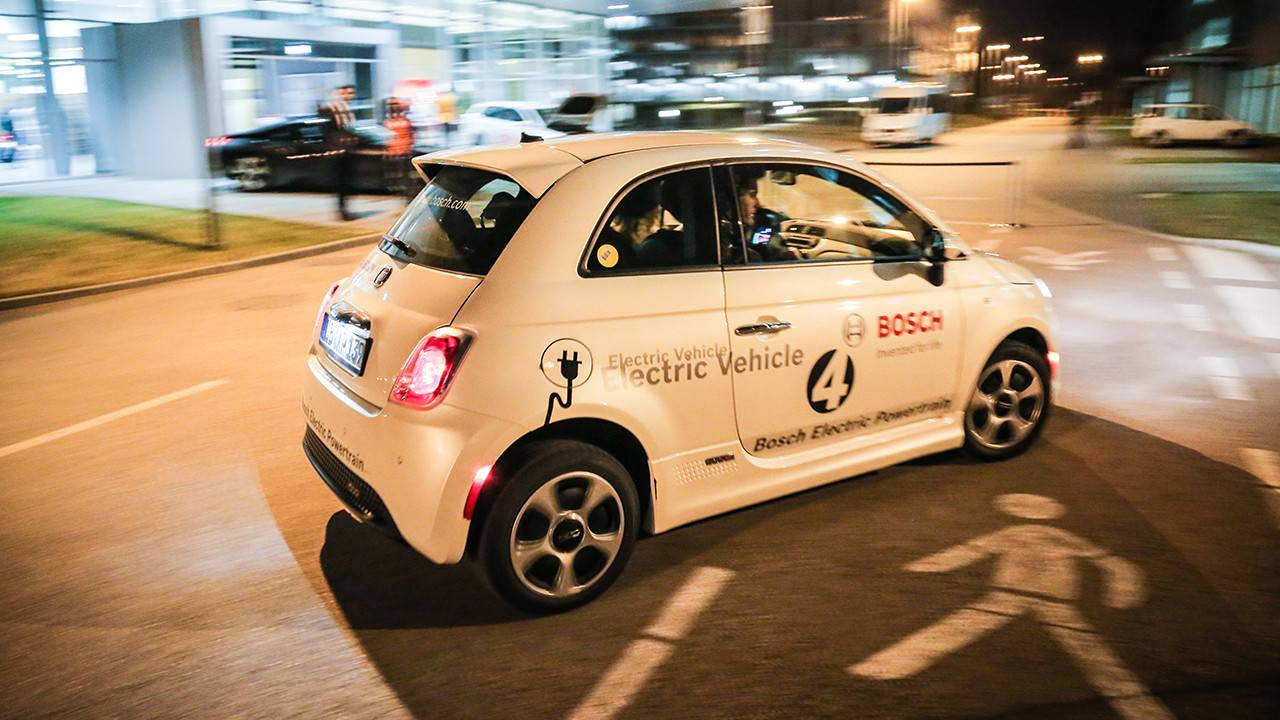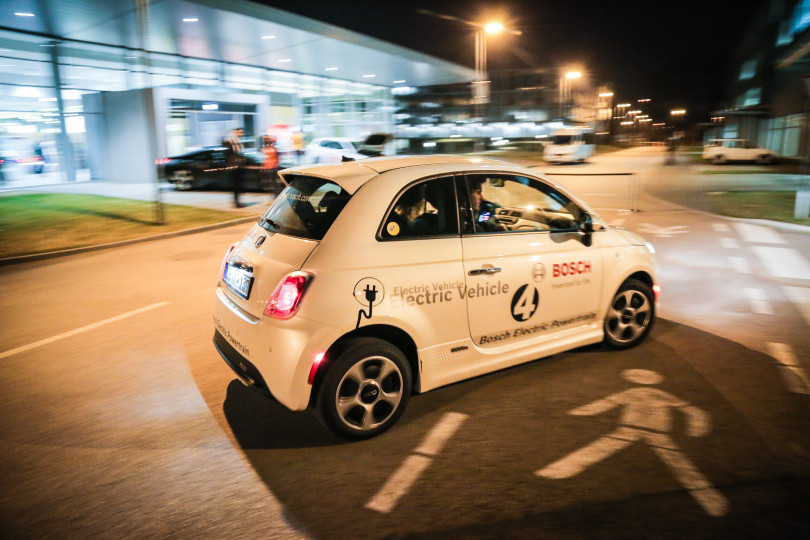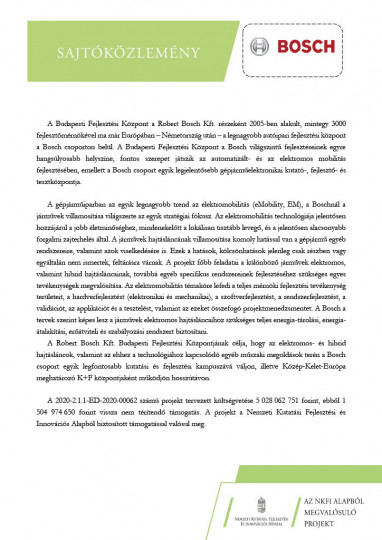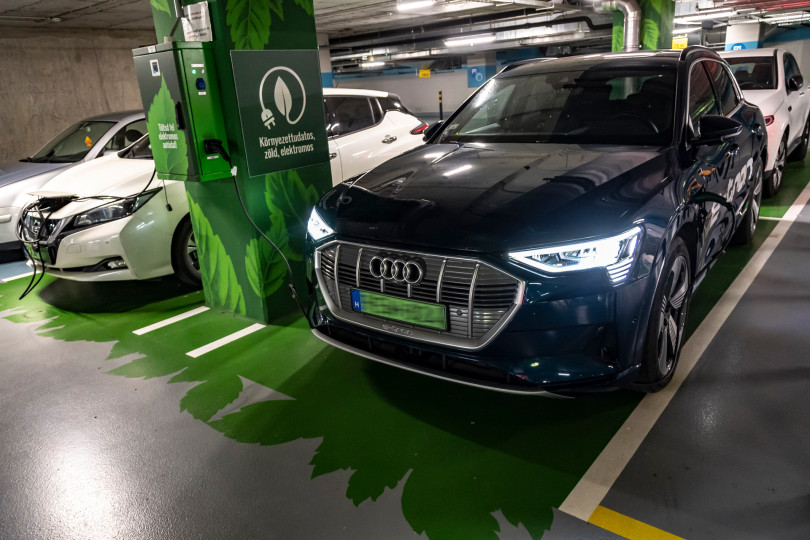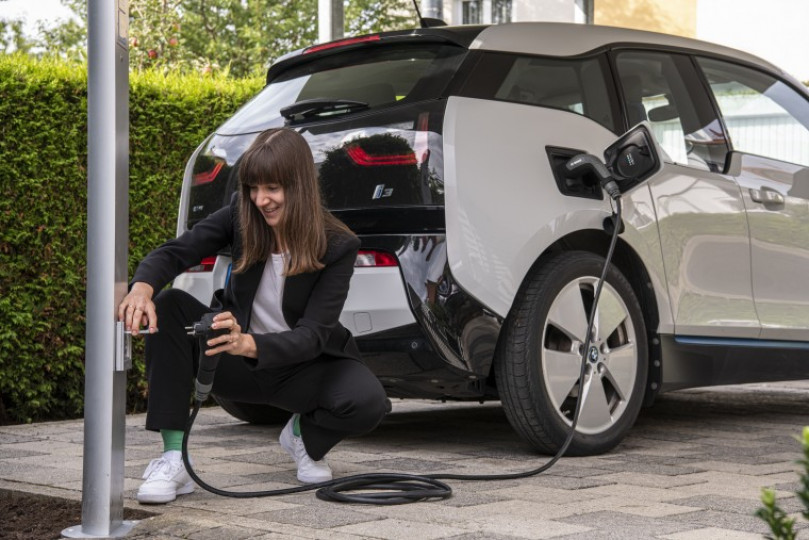Electromobility (eMobility, EM) is one of the biggest trends in the automotive industry, and vehicle electrification is one of Bosch's strategic focuses worldwide. Electromobility technology contributes significantly to a better quality of life, above all through cleaner air locally and significantly lower traffic noise pollution.
The electrification of the vehicle powertrain also has a major impact on other vehicle systems and their behaviour. These effects and interactions are currently only partially known or not known at all and are still to be explored. The main tasks of the project are to carry out some of the activities necessary for the development of electric and hybrid powertrains and other specific systems for different vehicles. The electromobility theme covers the whole range of engineering development activities, hardware development (electronic and mechanical), software development, system development, validation, application and testing, and project management bringing them all together. Bosch is expected to be able to provide the complete energy storage, power conversion, transmission and control system for electric vehicle powertrains.
Engineering Center Budapest of Robert Bosch Kft. aims to become one of the Bosch Group's most important research and development campus for electric and hybrid powertrains and other related technologies, and one of the main R&D centers in East-Central Europe in the long term.
The planned budget of the project 2020-2.1.1-ED-2020-00062 is 5,028,062,751 forints of which 1,504,974,650 forints is non-reimbursable grant. The project will be implemented with funding from the Hungarian National Research, Development and Innovation Fund.
Engineering Center Budapest was established in 2005 as part of Robert Bosch Kft., and with around 3,000 development engineers, it is now the largest automotive development center in Europe – after Germany – within the Bosch Group. Engineering Center Budapest is an increasingly important location for Bosch's global development activities, plays an important role in the development of automated and electromobility and is one of the Bosch Group's most important research, development and test centers for automotive electronics.
Mónika Hack
+36 70 510 5516
Bosch has been present in Hungary since 1898 with its products. After its re-establishment as a regional trading company in 1991, Bosch has grown into one of Hungary’s largest foreign industrial employers with currently eight subsidiaries. In fiscal 2021 it had total net sales of 1,711 billion forints and consolidated sales to third parties on the Hungarian market of 273 billion forints. The Bosch Group in Hungary employs more than 17,000 associates (as of December 31, 2021). In addition to its manufacturing, commercial and development business, Bosch has a network of sales and service operations that covers the entire country.
The Bosch Group is a leading global supplier of technology and services. It employs roughly 402,600 associates worldwide (as of December 31, 2021). The company generated sales of 78.7 billion euros in 2021. Its operations are divided into four business sectors: Mobility Solutions, Industrial Technology, Consumer Goods, and Energy and Building Technology. As a leading IoT provider, Bosch offers innovative solutions for smart homes, Industry 4.0, and connected mobility. Bosch is pursuing a vision of mobility that is sustainable, safe, and exciting. It uses its expertise in sensor technology, software, and services, as well as its own IoT cloud, to offer its customers connected, cross-domain solutions from a single source. The Bosch Group’s strategic objective is to facilitate connected living with products and solutions that either contain artificial intelligence (AI) or have been developed or manufactured with its help. Bosch improves quality of life worldwide with products and services that are innovative and spark enthusiasm. In short, Bosch creates technology that is “Invented for life.” The Bosch Group comprises Robert Bosch GmbH and its roughly 440 subsidiary and regional companies in some 60 countries. Including sales and service partners, Bosch’s global manufacturing, engineering, and sales network covers nearly every country in the world. With its more than 400 locations worldwide, the Bosch Group has been carbon neutral since the first quarter of 2020. The basis for the company’s future growth is its innovative strength. At 128 locations across the globe, Bosch employs some 76,100 associates in research and development, of which more than 38,000 are software engineers.
Additional information is available online at www.bosch.hu, iot.boschblog.hu, www.bosch.com, www.iot.bosch.com, www.bosch-press.com, www.twitter.com/BoschPresse

